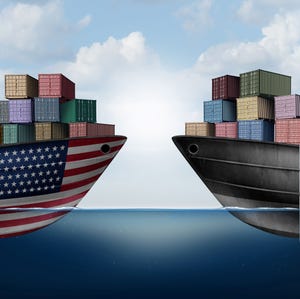“As a meat scientist for more than 40 years and now as the president of the American Meat Institute Foundation (AMIF), I take great pride in talking about the ways this industry makes good meat even better. Unfortunately, recently proposed rules could undermine this point of pride and the greater economics across the country,” says AMIF President James Hodges
February 9, 2011

“As a meat scientist for more than 40 years and now as the president of the American Meat Institute Foundation (AMIF), I take great pride in talking about the ways this industry makes good meat even better. Unfortunately, recently proposed rules could undermine this point of pride and the greater economics across the country,” says AMIF President James Hodges in a guest editorial on daily news web site www.NewsBlaze.com.
In his comments, Hodges notes that the proposed Grain Inspection, Packers and Stockyards Administration (GIPSA) livestock marketing rule would eliminate many jobs, cost consumers and producers more than $60 billion in higher prices, and expand our country’s trade deficit by making American meat and poultry products more costly and less attractive compared to international competitors. The proposal would also fuel an explosion of frivolous lawsuits and defeat its own stated purpose to promote competition.
It will also hinder improvements in meat quality, Hodges says.
“When I entered the meat science field many years ago, meat was a commodity. Thanks to ‘value-based marketing,’ and the partnerships that livestock producers and meat companies now embrace, we can make livestock production match consumer preferences for quality, tenderness, nutrition, convenience and other attributes. But if USDA’s proposed rule is finalized, marketing agreements that are the backbone of value-based marketing will be used sparingly because of greater legal risk associated with their use,” he writes.
“By discouraging the meat and poultry industry from partnering to produce the best product, this rule will result in lower quality beef, pork and chicken in supermarkets and on families’ dinner tables, costing consumers more money and workers jobs in the process. And any proposal that risks jobs during economic times like these needs a serious second look. More red tape, more red ink and more lawsuits aren’t the ingredients for a prosperous U.S. meat and poultry industry,” Hodges concludes.
You May Also Like



